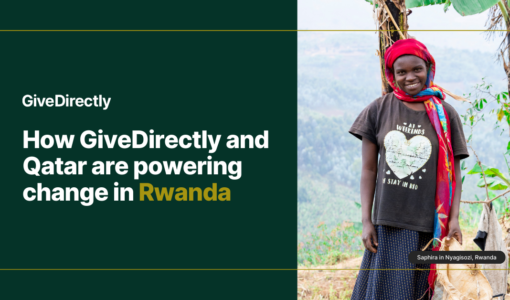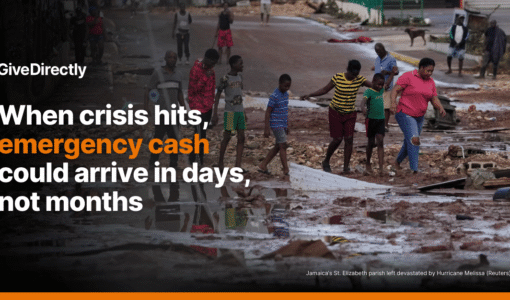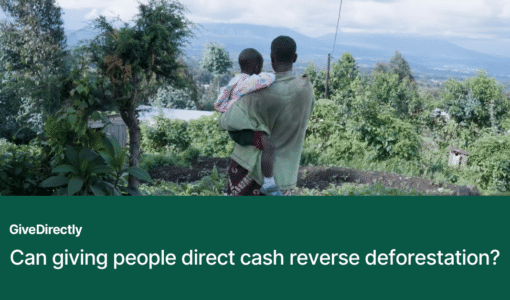“Cash transfers… universal basic income, what’s the difference?”
That’s the question a lot of people have been asking us recently. The short answer: a universal basic income (UBI) is a type of cash transfer.
As the name suggests, there are three discrete conditions that need to be met to consider a cash transfer a UBI:
- First, it must be universal. Unlike the more general term “cash transfer,” a basic income must be given to everyone within some well-defined community. Logically, this also means that a basic income is not targeted to people meeting specific eligibility criteria or conditional on actions people take.
- Second, it must be basic. That means it provides a payment that is enough to cover the cost of basic needs like food and shelter for one individual. What determines the level of “basic” depends a lot on context and geography — a basic income for someone in New York City would be a lot higher than someone in rural Kenya, for example.
- Finally, a universal basic income is an income – made up of recurring payments over a period of time. Cash transfers are often one-time lump sums or streams of payments that stop because they are time-bound, but a basic income continues for an extended period of time. The long-term arm of our basic income program will be guaranteed for more than twelve years.
“So how is a basic income different from GiveDirectly’s standard cash transfers? And which one should I donate to?”
This is another question we get a lot. At GiveDirectly, we offer two programs for you to support. One is a standard lump sum cash transfer to a family in need, the other is a 12 year experiment to test basic income.
Comparing the two is like comparing apples and oranges. Although they are both unconditional cash transfers, they are vastly different. Regular, lump-sum cash transfers are short term assistance to the very poorest families in a village. Many randomized controlled trials show that short term, targeted transfers like these have wide-ranging positive impacts; these transfers are arguably the best-tested anti-poverty intervention in the world.
On the other hand, a guaranteed basic income is a type of cash transfer that is less well-tested, and that’s one reason why we are running this experiment. Donating to poor families as part of this research will get you in on the ground floor of one of the most exciting anti-poverty studies of our generation. This research could help guide policy-makers and the $130 billion international aid industry, as well as trillions spent on social services in countries actively debating basic income around the world.
So which should you give to? Ultimately, that comes down to which program most appeals to you. In 2016, roughly half of the public gifts we’ve received have gone to the basic income experiment, and the other half have gone to standard lump sum cash transfers.



